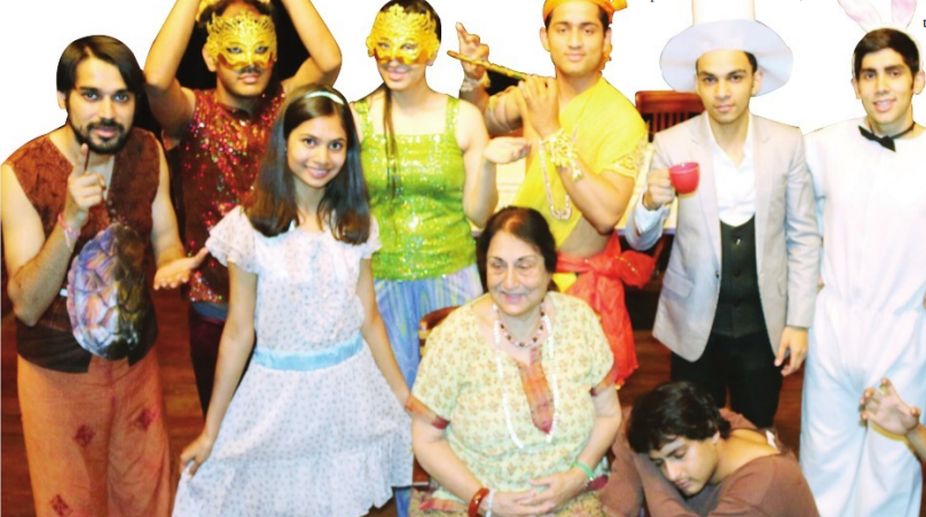What does education mean? Plato is believed to have said, "By education I mean that training in excellence from youth upward, which makes a man passionately desire to be a perfect citizen, and teaches him to rule and to obey, with justice. This is the only education which deserves the name."
Some may agree with this while others disagree. Or perhaps, as Martin Luther King Junior put it, intelligence plus character ~ that is the goal of true education.
Yet another definition in the words of Albert Einstein may hold true to a large extent, when he defines education as not only the learning of facts, but rather the training of the mind to think. Many people, many opinions, many definitions.
With the passage of time, education has taken several forms, based on the inclusion of different concepts, tools and methodologies as the conventional form of education restricts the learning process.
In today's fast-paced world, a number of additional skills help prepare an individual to face the world of not only today but also tomorrow. However, one aspect, which remains paramount, is to communicate effectively.
Expression and presentation are important aspects of communication, be it verbal or non-verbal. And, it is not only the expression and presentation of the self that one is talking about but also of various other dimensions, for example, of a service, product, emotion, challenge and many other aspects of dayto-day professional and personal lives.
So, a whole gamut of skills has been introduced, adapted to different levels of learning ~ be it physical, emotional, mental and even spiritual.
Whatever the skill, whatever the methodology, whatever the tool, one aspect is common to all ~ creativity. Thinking out-of- the-box, being unique and doing something different is the key to standing-out in a crowd.
This has led to the introduction of creativity in the important field of education too ~ specifically didactic tools and methodologies. And this does not only restrict itself to teachers or trainers, but covers students too. As the saying goes: Good teaching is onefourth preparation and threefourth pure theatre.
Learning ground
Art is an important domain ~ and in any form. Talking about theatre, to begin with, Jalabala Vaidya of Akshara Theatre explained, "We have been conducting workshops for almost 17- 18 years now. I strongly feel that theatre should be an integral part of education and not just for one period of, say 30-45 minutes, but perhaps two periods, including a time span of 90 minutes, in order to do justice to this art form.
Theatre needs time. It cannot be rushed. Why, one may ask? Simply because it includes the art of observation, assimilation, understanding and portrayal of the understood in one's own style, using one's own creativity."
Agreed, but how do educational institutions take out time from their packed, rather overburdened schedules? Jalabala emphasizes the importance when she noted that theatre is not just acting; it enhances nonverbal communication like body language, facial and eye expressions, gestures and postures. Besides this, she also pointed to the fact that verbal communication, which comprises important elements like diction, voice modulation and clarity of speech, are enhanced through theatre.
"Everyone should be taught theatre at some point in the journey of being educated. It helps build up one's personality, in a nutshell, and is this not what each one of us is looking to develop ~ both for the sake of professional and personal lives?"
One could not agree more with her. In fact, placing oneself in the shoes of another or in the skin of a character requires the ability to "leave oneself behind", which in fact is a stress buster of sorts, as not only does one make an effort to understand the character being played but the much needed "break" helps one to return to the "stress" with a much more collected and rational mind.
Sanjna Kapoor, cofounder, Junoon, elaborates further on this important aspect. "Free play is an enormous stress buster and this applies to play of any kind, especially non-competitive play. It has been scientifically proven that joyful play releases certain endorphins in the brain, increasing alertness and attention. In 2008, NCERT rewrote its Arts Curriculum.
The preamble states, 'An urgent need to integrate art education in formal schooling has been propelled by the need to retain our cultural identity in all its diversity and richness; and provoked by the steady ebbing of general awareness of the arts in our lives among students, their guardians, teachers as well as policy makers, and educationalists.'
An understanding of the arts of the country will give our youth the ability to appreciate the richness and variety of artistic traditions as well as make them Liberal, creative thinkers and good citizens of the nation."












